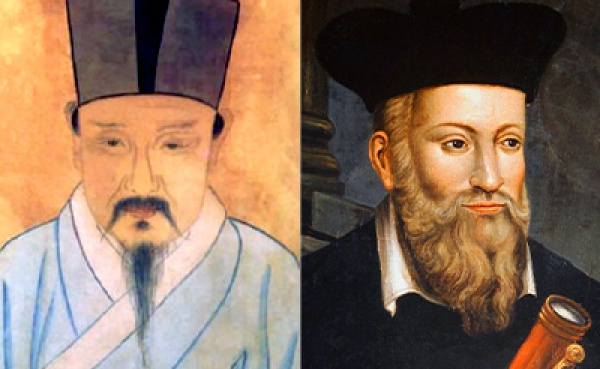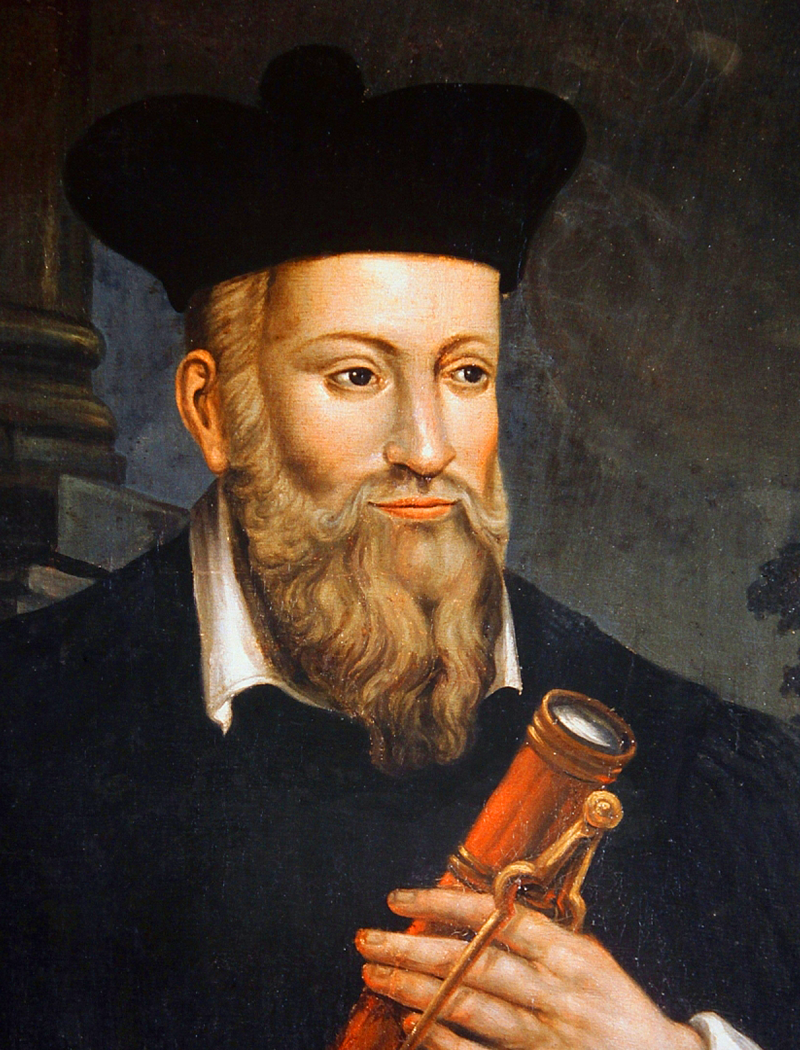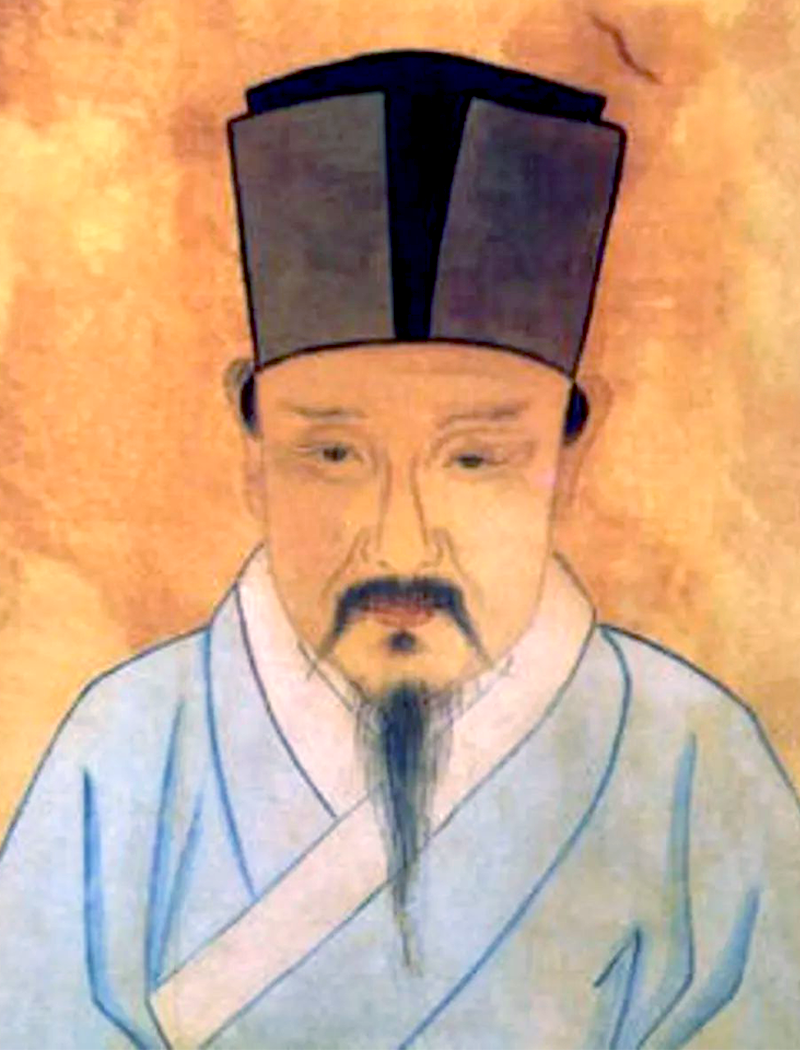This pair of prophets seemed to predict everything except for a blog being written about them.
Nostradamus
The famous prophet Nostradamus (born Michel de Nostradame) was an astrologer and physician who lived in France during the sixteenth century.
In 1555, he published The Prophecies, a book containing almost a thousand quatrains of predictions. Written in riddle-like poems, the prophecies predict a range of events all the way until the year 3797.
According to one recorded event, in 1556 Nostradamus was in the royal court of Paris and was asked to explain one of his earlier prophecies, which was widely assumed to be about King Henry II. In this prophecy, Nostradamus predicts that an older lion would succumb to a younger lion in battle, and that the younger lion would pierce the older’s eye, leading to a painful death. While explaining this prophecy, Nostradamus warned the king that he should not participate in jousting events.
But three years after that, King Henry II took part in a jousting match. The opponent’s lance pierced his head behind the eye. The king died of infection ten painful days later.
Among the significant world events Nostradamus is said to have predicted are the French Revolution, Napoleon, Hitler’s rise, the persecution of Falun Gong, and 9/11.
Some are now saying he also predicted the current pandemic. It may be interesting to note that Nostradamus first became famous for treating outbreaks of the bubonic plague throughout southern France and Italy, and he also published two medical books.
Liu Bowen
Liu Bowen (born Liu Ji) played such a similar role to his French counterpart that he has been dubbed the Chinese Nostradamus. Like Nostradamus, he is also known for his unsettling prophecies.
Liu, who lived in the fourteenth century, was a philosopher, poet, military strategist, and politician. He was chief advisor to Zhu Yuanzheng, founder of the Ming Dynasty. He is remembered as a brilliant strategist as well as a wise and upright official who, in 1348, famously refused to accept a bribe from the leader of a rebel force.
Like Nostradamus, Liu also wrote about other topics, in this case military strategy, publishing the books Extraordinary Strategies of a Hundred Battles and Eighteen Strategies and Affairs.
Like Nostradamus, who would meditate to find inspiration for his prophecies, Liu was also a spiritual seeker. Like Nostradamus, Liu wrote his prophecies in lyrical form, his predictions hidden in riddles.
His most famous work is the Pancake Song (Shaobing Ge), which he presented to the emperor. In it, he is said to have predicted the 1449 Mongol invasion, the Sino-Japanese War, the appearance of Sun Yat-Sen, and the founding of the Republic of China in 1911.
Liu, too, has recently gained attention for his prophecies about a plague. In his Shaanxi Province Mount Taibai Inscription, he says the plague will erupt in the years of the Pig and Rat. According to the Chinese zodiac, 2019 (when the virus started spreading) was the Year of the Pig, and 2020 was the Year of the Rat.
Regardless of whether you’re rich or poor, if you don’t improve your morals, death will soon be before you, Liu warns. People consider money precious, but ‘tis useless in the plague.
Huguang province will be in great trouble, he says. Huguang is the name of an ancient province encompassing Hubei province, the capital of which is Wuhan.
There’s more to it, but let’s stop here before it gets too long. Liu does end by suggesting that having the true treasure—high moral values—will allow people to live peacefully.
And in this, Liu joins a tradition we have seen in both East and West, where sages have long stressed that if we hold fast to morality, we have hope.






